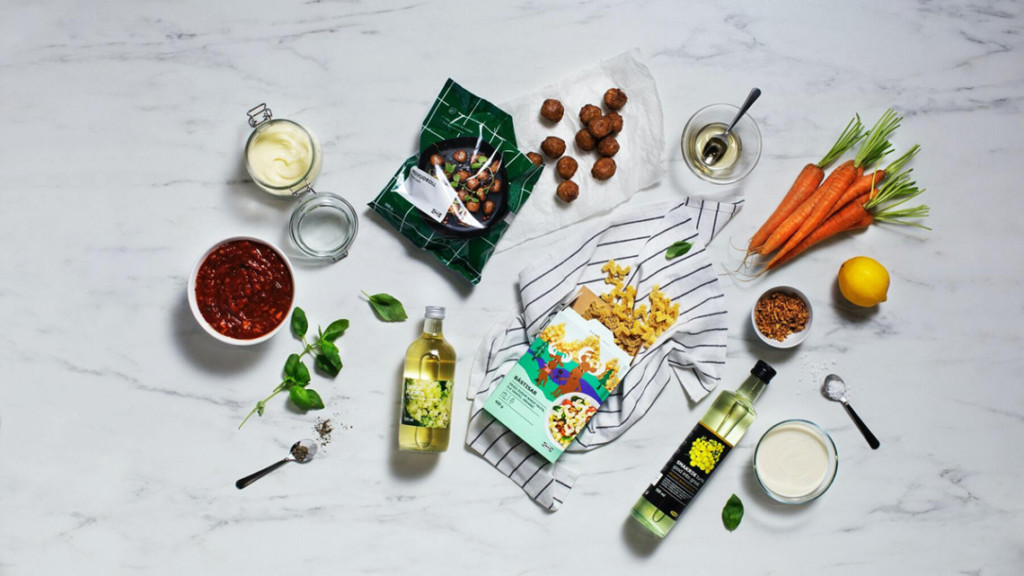Ikea, mirroring the shift in American consumers’ diets, will amp up its plant-based food options and cut down on red meat in a phased roll-out of new products over the next five years.
The retailer, best known as a furniture seller but also one of the world’s largest restaurant chains, has committed to making half of its cafe meals plant-based, and 80% non-red meat, by 2025. In addition, 80% of its packaged goods, sold at its Swedish Food Markets, will be plant-based within that time frame.
Targeting flexitarian interest in the sizzling hot plant-based category and addressing a major consumer pain point, the brand has committed to comparable pricing for meat and meat-free products.
“Research confirms the importance of making sustainable products affordable and desirable, and Ikea can really make a positive difference here,” said Lena Pripp-Kovac, chief sustainability officer at Inter Ikea Group. “The more sustainable choice shouldn’t be a luxury for the few. It should be part of people’s everyday life.”
Though many shoppers have relied on Ikea for Billy bookcases and Lack coffee tables, millions—680 million, to be exact—bought food at the chain in 2019. Those stats represent “a big responsibility, and opportunity, to make a positive difference and inspire a more healthy and sustainable living,” Ikea said in a statement.

Several months ago, the retailer announced its newest bistro product, the plant ball, made with yellow pea protein, oats, potatoes, onion and apple. The faux meatball, which went on sale in U.S. stores in late September, has a substantially lower climate footprint, at 4% of the classic meatball’s impact. (And for those who found “plant ball” to be a less-than-appetizing name, it’s called “huvudroll” in Swedish. Better?)
That meatless meatball joined several other versions—all formulated in-house with its own recipes—like the salmon ball, chicken ball and veggie ball, that cut down on the chain’s use of ground beef.
But fans of the famous Swedish meatball need not fear—it’s still available, and the strong-selling flagship product isn’t going anywhere. It will sit alongside items like the veggie hot dog and yet-to-be-announced menu options.
Ikea, which has launched a steady stream of earth-friendly practices, noted that the food system contributes 25-30% of global greenhouse emissions, with a significant part of that coming from livestock production.
The brand is “taking a full value chain approach to contributing to sustainable food systems, from responsible sourcing of materials, reducing food waste along the value chain, circular and more sustainable packaging and using the Ikea reach to make healthy and sustainable food options available to as many people as possible,” said Peter van der Poel, managing director for Ikea of Sweden and manager, Ikea range and supply.
Major players in the industry, like Beyond Meat and Impossible Foods, have aggressively expanded their distribution in recent years, not just at supermarkets but also at quick-service restaurants, adding crown jewels like Starbucks, Burger King, McDonald’s and Pizza Hut to their portfolio.
Analysts in the space say that fast-food chains have been among the best evangelists for the plant-based movement, speaking especially to omnivores and flexitarians. And the products are likely to continue to spur growth.
“Plant-based meat was a significant growth driver before Covid-19, helping operators attract new customers, eliminate veto votes in group dining situations, and raising check averages,” Good Food Institute’s Zak Weston said in a June blog post. “Now, plant-based food can be a growth engine for restaurants as they rebuild and adapt amid the pandemic.”
https://www.adweek.com/retail/ikea-pledges-to-make-50-of-its-food-plant-based-reflecting-a-shift-in-consumer-diets/

